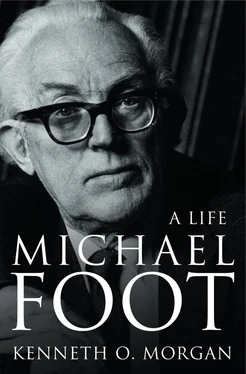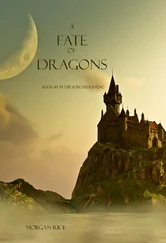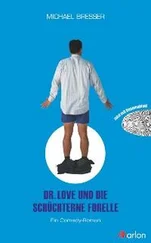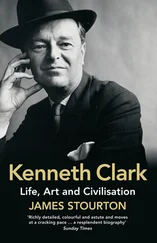This bond between father and son was illustrated by Isaac’s splendid lecture comparing Oliver Cromwell and Abraham Lincoln given to the Royal Society of Literature in April 1944. Michael Foot’s copy of the published version was inscribed ‘To Michael with love and Cromwellian Salutations from Dad, 23 February 1945’. It seems almost as if Cromwell was a member of the family, a particularly cherished great-uncle. Dingle Foot was to recall that there were twenty to thirty busts or portraits of Oliver in their home. The Cromwellian aspect was obviously well absorbed by Michael. Lincoln, however, he found less appealing, perhaps too conservatively inclined, especially on race questions, and indeed American inspiration generally was less influential on a politician so robustly English. By far the most attractive American for the young Michael was Thomas Jefferson, not so much in his role as an American revolutionary as that of a transatlantic voice for western European enlightenment.
For all his partisanship, Isaac’s cheerful, generous personality won him good friends across a wide spectrum, and indeed these came to include the much-abused Astors themselves. He was always active in the municipal life of Plymouth, and became its Lord Mayor after the end of the war in 1945. He patronized the city’s religious and musical life, and also sporting events in football and cricket: Isaac began a unanimous Foot tradition of supporting Plymouth Argyle FC, based at Home Park and elected to the Football League in 1920. It was a family link that continued from Isaac’s vocal terrace support in the 1920s to Michael’s becoming a club director in the 1980s.
But Isaac’s main influence on his sons and daughters, and especially on Michael, lay not in politics but in books. From his early years he was, as Michael was frequently to describe him, a ‘bibliophilial drunkard’ whose appetite was ‘gargantuan and insatiable’. 9 He had an obsession for rare and other books of all kinds, especially historical, literary and religious. His collecting began when, as a young clerk in London, he spent as much as he could of his fourteen shillings weekly pay in the second-hand bookshops of Charing Cross Road. In his later years every room in his large home at Pencrebar, even (improbably) the laundry room, was crammed full of carefully arranged and notated volumes. He would read for four or five hours every day; he would read as he walked to work, he read in his bath, he would have read in his sleep were it possible. Much of his library was sold off to the University of California, Santa Barbara, for a surprisingly low figure of £ 50,000 after his death in 1960, 10 less than £ 1 per book. Other materials went to Berkeley and UC Los Angeles, so sadly the library was dispersed: it had expanded to perhaps sixty thousand books, including no fewer than 240 Bibles, among them priceless octavo and quarto editions of Tyndale’s New Testament of 1536, and many medieval illuminated manuscripts, along with an immense range of antiquarian works by or about Shakespeare, Montaigne (130 volumes), Milton, Swift, Pope, Johnson, Burke, Hazlitt, Wordsworth, Carlyle, Hardy, Conrad and some unexpected intruders onto the old puritan’s shelves, such as the sonnets of Oscar Wilde’s lover, Lord Alfred Douglas. The inventory of UC Santa Barbara library listed three thousand English Civil War tracts, over two thousand volumes on the French Revolutionary period, and over a thousand on the American Civil War, amongst his historical collection. A colossal holding on literature included over three hundred volumes on and by Milton, including first and second editions of Paradise Lost and a first edition of Areopagitica . The religious holdings were equally immense, including titles on and by Luther and Calvin, a hundred contemporary Erasmus imprints, vast collections on Richard Baxter’s Congregationalism, and a Quaker collection of more than two hundred volumes. Isaac Foot also ranged around the classics: one especially priceless book was the 1488 edition of Homer printed in Florence.
Somehow all these volumes were crammed into Pencrebar, though only just. Isaac designated a Bible room and a French Revolution room; when he developed an interest in Abraham Lincoln later in life there was an American Congress room. Many books were extremely rare, yet there was apparently the minimum of security against fire or theft. His home was a shrine to what George Gissing had called ‘the shadow of the valley of books’. So extreme was his mania for collection that A. L. Rowse, a historian at All Souls, Oxford, and no inconsiderable bibliophile himself, claimed that Isaac Foot’s second wife was in tears as one room after another was annexed for his literary stockpiling, supplemented by bookcases to occupy what little room remained. ‘He has the obstinacy of a senile fixation,’ was Rowse’s harsh verdict. 11 But clearly for the young (and middle-aged) Michael his father’s passion for the printed word was breathtakingly exciting, the key to a civilized life. In return, Isaac delighted in Michael’s own emerging skills as a powerful writer of serious literary books. The publication of The Pen and the Sword in 1957, written after Michael had lost his Devonport seat in the 1955 general election, perhaps gave Isaac more pleasure than any other feature of his son’s career. ‘Let the boy be known for his books,’ he lovingly observed.
Isaac’s influence was profound on all his children, but on Michael most of all. Michael’s journey into the Labour Party, a unique adventure for the Foot family, did not threaten their relationship; if anything, it made it stronger. Isaac responded by offering Michael the example of Hazlitt as the supreme inspiration any real radical could ever want. He gave him a passion for language, written and spoken; Michael’s politics were politics of the book. He spelled out for the readers of the Evening Standard (1 June 1964) his philosophy of life, drawn from the critic Logan Pearsall Smith: ‘To read and to act is not achieved by many. And yet to act and not to read is barbarism.’ It was books, as much as the sufferings of his fellow men, that made Michael a socialist and nurtured his unique brilliance as a communicator. More specifically, it was Isaac who directed him to the unique qualities of Swift and Hazlitt, Michael Foot’s prime allies in his assaults on twentieth-century political opponents, his friends in good times and bad. The more measured influence of Montaigne, the cool, sceptical essayist of sixteenth-century France, but also the mentor of Foot’s hero Swift, was another legacy from Isaac when Michael turned to Montaigne’s essays in hospital after a serious car crash in 1963. Another hero was John Milton, not only a matchless poet but in Areopagitica a timeless champion of a free press.
On the other hand, Michael’s growing love of literature was self-nurtured also. Isaac’s literary enthusiasms were mainly pre-Romantic and shaped by a puritan heritage. Michael’s own passionate temperament gave him heroes of a different kind, in particular his beloved Byron, for whose poetry Isaac had no particular regard and which had been fiercely criticized by one of Michael’s own heroes, Hazlitt. Without Isaac’s affection and inspiration, Michael Foot’s career would have been far less distinctive. But it might also have been less dogmatic and he might have been more open to argument from others. Isaac’s literary giants, it seemed, were almost gods, to be treated with near-sanctity. None of them could be lightly impugned. There was also a curious formality, almost a distance, between father and son. When Isaac ran into debt as a result of his solicitor’s business being disrupted during the war when his offices in Plymouth were bombed out, quite apart from his manic book purchasing, Michael, now with a good income from the Evening Standard , loaned him successive sums of money to help him out, ranging from £ 110 in May 1940 to £ 875 in March 1941. Each was accompanied by a highly detailed formal IOU drawn up in legalistic terms by Isaac. An IOU of £ 2,095 up to September 1942 set out both the capital sum and the interest upon it at £ 4 per annum as a first charge on Isaac’s estate, a strangely formal arrangement perhaps between a father and a son. 12 Having Isaac as a father was both an inspiration and a challenge, but without doubt he contributed most of the components of his son’s passionate but unquestionably bookish socialism.
Читать дальше












